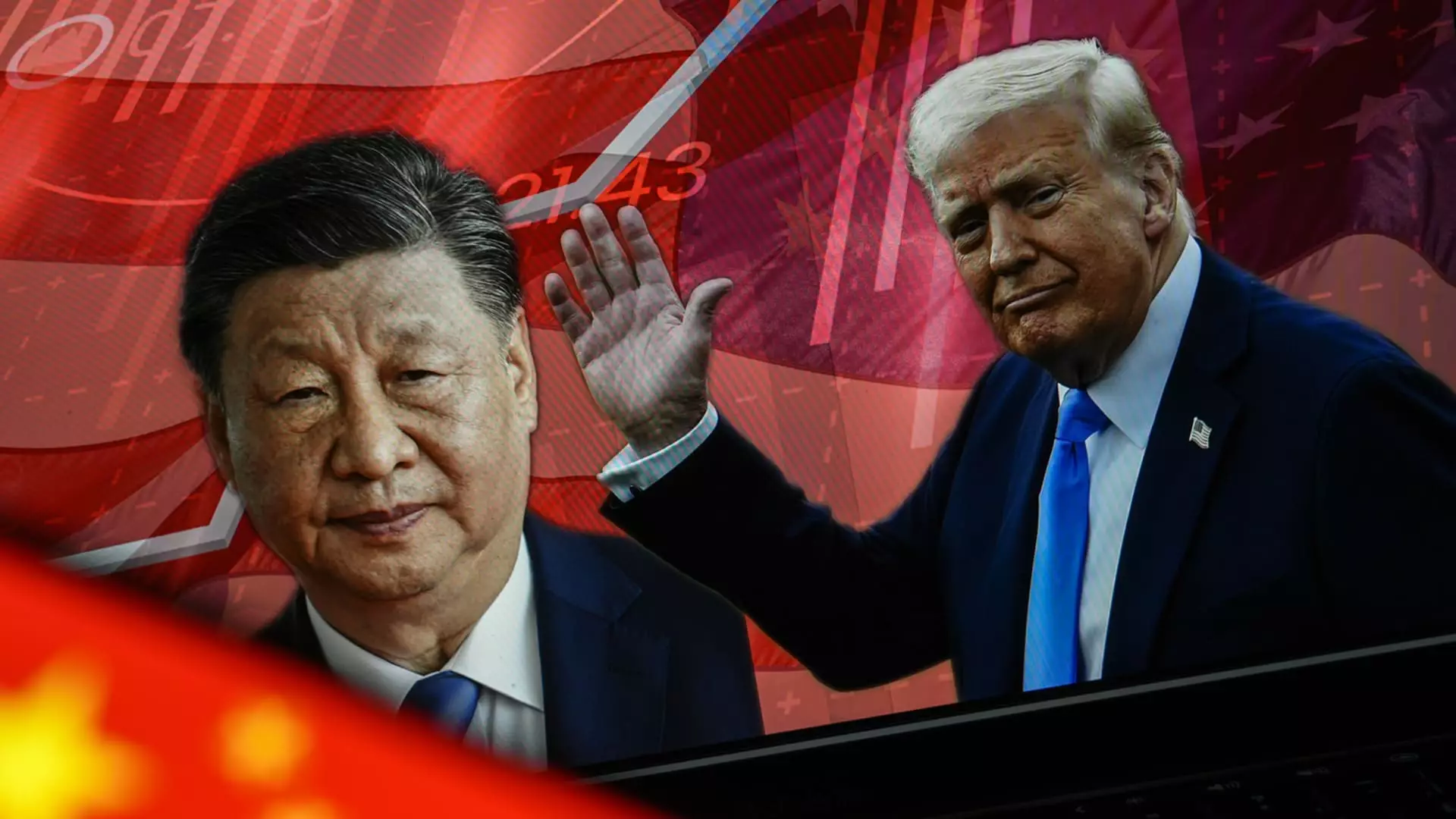In the arena of global trade, the escalating competition between the United States and China has reached unprecedented levels. Last week marked a significant turning point as China publicly declared its intent to cease retaliatory measures against U.S. tariffs instituted by President Donald Trump. Rather than merely responding in kind, Beijing has pivoted towards alternative strategies that pose new challenges for American businesses. This shift represents a critical point in the ongoing trade war, highlighting the fraught and complex nature of international economic relations that increasingly veer towards hostility.
China’s discourse around tariffs has become glaringly dismissive, labeling further U.S. tariff increases as a mere “joke.” This sardonic characterization reveals a broader disdain for America’s trade tactics while also hinting at strategic maneuvering aimed at safeguarding Chinese interests. The Trump administration has engaged in a series of escalatory tariff hikes, raising duties on select goods from China by as much as 245%. However, Beijing’s latest approach has introduced a suite of non-tariff measures that target sectors beyond mere goods, aiming directly at the heart of American services. This sets a dangerous precedent wherein economic diplomacy could devolve into economic warfare.
Beijing’s Tactical Maneuvers
China’s recent actions signal a calculated escalation in its economic strategy, with particular emphasis on sectors that have been traditionally advantageous to the U.S. For instance, restrictions around rare-earth minerals—crucial for technology and defense industries—indicate that China can leverage its position as a dominant supplier in critical resources. By demanding special licenses and tightening export controls, China is effectively closing the door on American access to materials vital for semiconductor production, missile-defense systems, and even renewable energy technologies. This approach not only endangers U.S. technological advancement but also signals to the world that China possesses an arsenal of tools to inflict economic harm.
The announcement that Chinese airlines would halt deliveries from Boeing, one of America’s largest exporters, adds further strain to U.S. economic prospects. Herein lies a dual challenge: not only does it threaten Boeing’s financial stability at a time of crisis, but it also communicates a chilling message regarding the consequences of U.S. policy decisions. The implications expand beyond immediate financial loss; they tap into a broader economic narrative that reinforces China’s resolve to assert power over American corporate interests.
A Shift to Service Sector Assaults
As tensions mount, it appears that China’s strategy is evolving toward attacking the U.S. service sector—a realm in which the U.S. has historically enjoyed a significant surplus. Investments made by U.S. companies in legal, consulting, and educational services have borne fruit, allowing American firms to flourish in Chinese markets. However, China’s recent statements hint at imposing restrictions on American legal consultancy and probing the “monopoly benefits” perceived to be enjoyed by foreign firms over domestic businesses due to intellectual property rights.
While experts may argue the economic magnitude of this shift is limited, the symbolic weight is undeniable. The potential curtailing of American influence within attractive sectors such as tourism, education, and entertainment resonates with a politically sensitive audience in the U.S. Estimates suggest that if travel restrictions are imposed, U.S. services markets could face losses upwards of $24 billion. However, the broader implications of this downturn may yield far-reaching repercussions for people-to-people connections and intergovernmental cooperation.
The Unsettling Path Ahead
Analysts foresee a widening decoupling of the two economies, raising concerns that these economic conflicts may evolve into a darker phase of systemic divergence. With the atmosphere poisoned by accusations and retaliations, there seems to be little hope for constructive dialogue in the near term. As both sides brandish their economic weapons, companies like Apple and Tesla find themselves caught in the crossfire, risking not only their bottom lines but their operational integrity in one of the most significant markets in the world.
What lies ahead is a precarious dance where economic retaliation becomes increasingly normalized, sowing discord and skepticism. The ramifications extend far beyond mere trade figures; they echo in the halls of diplomacy, technology, and cultural exchange.
When the Chinese government asserts that it is prepared for a protracted struggle, the stakes become alarmingly tangible. President Trump’s administration, while expressing openness to negotiations, places the onus on Beijing to initiate the overtures. If history serves as any guide, waiting for the other nation to blink could lead both parties down a treacherous path riddled with missed opportunities for compromise, ultimately shaping a new age of isolationism in the global economic landscape.


Leave a Reply